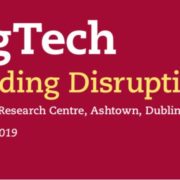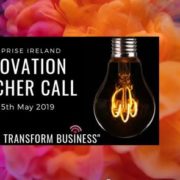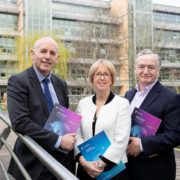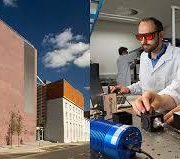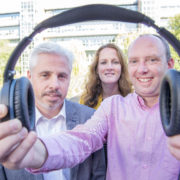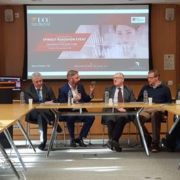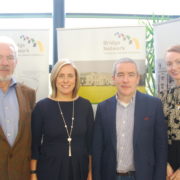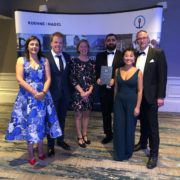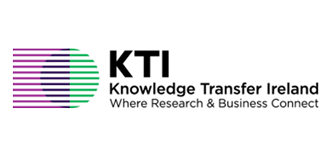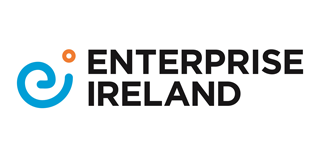Tuesday 5th March, Dublin – Minister for Business, Enterprise and Innovation, Heather Humphreys TD and Minister of State for Training, Skills, Innovation, Research and Development, John Halligan TD, today announced an investment of over €100 million in six new SFI Centres for Research Training. The SFI Centres for Research Training programme, the first postgraduate training programme run by Science Foundation Ireland, will provide training for 700 postgraduate students in areas of nationally and internationally identified future skills needs of digital, data and ICT.
The SFI Centres for Research Training are now open for recruitment, and postgraduate students across the country are encouraged to apply for this innovative programme which will build on research excellence in Ireland.
Welcoming the announcement of the SFI Centres for Research Training, Minister for Business, Enterprise, and Innovation, Heather Humphreys TD said: “In Project 2040, the Government has set objectives that will ensure a strong economic future for Ireland. Delivering on these will require continued investment in skills and talent in research and development, equipping the champions of this future economy with the tools and expertise necessary to build it.
“The six new SFI Centres for Research Training will bring together the higher education sector and industry to develop and deliver innovative programmes of research and training for postgraduate students in Ireland.
“In line the Government’s new Future Jobs initiative, which we will launch in the coming days, these programmes will allow students to develop and learn about critical technologies for the future in areas like machine learning, artificial intelligence and more. This is all part of our wider effort to ensure that we are preparing now for tomorrow’s economy.
“I want to congratulate the teams involved in forming the centres and encourage postgraduate students across the country to apply to them.”
Minister of State for Training, Skills, Innovation, Research and Development, John Halligan TD said: “It is a government priority to develop and maintain a pipeline of highly trained, well networked research talent in areas of strategic importance for Ireland. Through the SFI Centres for Research Training we will take a cohort-based approach to research training, allowing for better integration and collaboration across disciplines, and ultimately, individuals who are well-rounded, well-equipped, and confident to guide Ireland to a strong economy. The cohort approach will expose students to the wider scientific relevance of their research, encourage peer-to-peer learning and facilitate the establishment of networks, empowering them to take on positions of leadership.”
The SFI Centres for Research Training will generate strong collaborations between research and industry. They will involve partnerships across multiple Higher Education Institutions including University College Dublin (UCD), Technological University of Dublin (TUD), Dublin City University (DCU), Trinity College Dublin (TCD), Cork Institute of Technology (CIT), University College Cork (UCC), Maynooth University (MU), University of Limerick (UL), NUI Galway (NUIG), Tyndall National Institute (TNI) and Royal College of Surgeons Ireland (RCSI).
A number of SFI Research Centres and approximately 90 major industry partners will also support the SFI Centres for Research Training.
The six SFI Centres for Research Training are:
Dr Brian McNamee (UCD), Dr Georgiana Ifrim (UCD), Prof Sarah Jane Delany (TU Dublin), Prof Noel O’Connor (DCU)
Prof Carol O’Sullivan (TCD), Prof Vincent Wade (TCD), Prof John Kelleher (TU Dublin), Prof Alan Smeaton (DCU), Prof Peter Corcoran (NUIG), Prof Julie Berndsen (UCD)
Prof Dirk Pesch (UCC), Prof John Barrett (CIT), Dr Deirdre Desmond (MU), Prof Siobhán Clarke (TCD), Prof Max Ammann (TU Dublin), Prof Cormac Sreenan (UCC)
Prof James Gleeson (UL), Dr Claire Gormley (UCD), Prof Ken Duffy (MU)
Prof Barry O’Sullivan (UCC), Prof Tiziana Margaria (UL), Dr Ivana Dusparic (TCD), Dr Derek Bridge (UCC), Dr Suzanne Little (DCU), Dr Paul Buitelaar (NUIG)
Prof Cathal Seoighe (NUIG), Dr Eva Szegezdi (NUIG), Prof Denis Shields (UCD), Prof Gianpiero Cavalleri (RCSI), Prof Pavel Baranov (UCC), Prof Aoife McLysaght (TCD)
Professor Mark Ferguson, Director General of Science Foundation Ireland and Chief Scientific Adviser to the Government of Ireland, said: “I am very pleased to announce the six new SFI Centres for Research Training .The level of investment in this programme is significant, and demonstrates SFI’s commitment to ensuring that future generations of Irish PhD students are well trained in the important field of data analytics and its application to business, health, agriculture etc. Teams of excellent researchers in Irish higher education institutions have teamed up with industrial collaborators and international partners to develop outstanding national programmes of research and training in digital, data and ICT skills – the future of both the economy and society .SFI aims for this to be the best programme in the world providing major opportunities for PhD students in Ireland and a rich source of outstanding graduates who will be sought after by employers from both the private and public sectors.”
Operating on a thematic basis in terms of skills needs, the first SFI Centres for Research Training will focus on the area of ‘Data and ICT Skills for the Future’. This area highlighted in particular by the Government’s Future Jobs initiative, which prepares for the future economy by investing in innovative, disruptive technologies. The scope of this thematic area includes innovative software and hardware-based information and communications technologies (ICT) as well as the diffusion of ICT in other application areas of science and technology. With ICT playing a role as a key enabling technology in other application areas of science and technology, the development and adoption of disruptive technologies will also be a focus for this round of funding.
For more info see: http://www.sfi.ie/research-news/news/sfi-humphreys-halligan/

